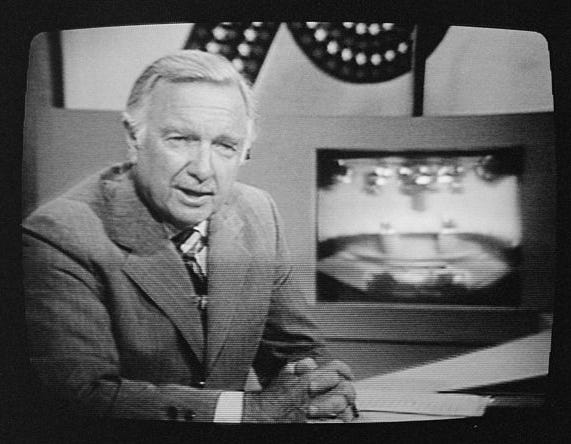The “Good News” for a Hopeful Pessimist:
Believing in Miracles of a Different Sort
Preface:
News, News, News. I’m So Sick of News
Growing up in the middle of the last century, I’m old enough to remember the signature sign-off used by news commentator and journalist Walter Cronkite. “What kind of a day was it?” he’d ask. And then provide his own answer to the question he’d posed: “It was a day like all days. Filled with those events that alter and illuminate our times. And you were there.”
At one point in the sixties (last century) -- during the controversial American war in Southeast Asia -- he offered his own newsworthy on-the-ground assessment in Vietnam with the telling comment, “We are mired in a stalemate.”
Six decades later -- considering the numerous places in the world today that are caught up in similar unresolved conflict -- one might certainly and despairingly conclude such a stalemate still remains, only on a larger scale. Consequently, one could certainly wonder if things will ever change; particularly if one recalls Cronkite’s other familiar sign-off, “And that’s the way it is.”
Cynics or Pessimists?
In a recent post, professor / author / political commentator Robert Reich reflected on the disturbing and disheartening era in which we find ourselves these days, and made an important distinction:
“If all of this makes you pessimistic, I understand. The immediate future does look bleak. But please do not become cynical. Don’t lose hope. … Pessimism is different from cynicism. Pessimists believe an outcome will be bad. But cynics don’t even try for a different outcome because they’ve lost all hope.”
As a pessimist (or, or perhaps, just plain realist) of a certain sort, I’ve written and shared a number of commentaries on the nature of hope (e.g. here); and the oft-perceived naiveté that lies the heart of a “good news” message once taught and practiced by the Galilean peasant sage (links). Such a message might be dismissed as a charmingly quaint, but futile, response to what is perceived to be the “real” world.
Understandably, in fact, one might think it would take a miracle if things were to ever change. Indeed. But what kind of miracle?
Miraculous Hope:
“Twas Blind, but Now I See”
Did Jesus really cure the lame to walk again, restore sight to the blind, and raise the dead to new life? When it comes to those gospel stories in the canonical scriptures describing the miraculous powers of Jesus’ “earthly” ministry, I don’t believe in any literal interpretation of what seemed to his followers to be simply miraculous. I say, if someone did experience an inexplicable restoration to health, or some mortal was inexplicably resuscitated to extend their mortal life a few more days, good for them!
But I also believe so-called miracle workers today -- who invoke their savior’s name, in order to try to physically imitate or replicate such an event -- are short-changing the far more significant message to be conveyed in such gospel tales. Consider, for example, one well known “miracle” story from the scriptures:
Decades after Jesus was dead and gone, the canonical Gospel of John was recorded by an early pre-Christian faith community that strove and struggled to re-tell and interpret many tales passed down to them through an oral tradition. One of those stories was about Jesus miraculously restoring the sight of a man born blind (John 9:1-41).
In the story, Jesus simply spits on the ground, then rubs mud on a blind man’s eyes, and the man can suddenly and clearly see what he’d heretofore never been able to see since the day he was born. Read that sentence once more; and then consider that’s the simple, underlying, metaphorical message that might well be deemed miraculous.
But instead, the story then devolves into a long, drawn-out debate as to how it all could have happened. Physical blindness – like any other impairment -- was believed to have been the consequence of some unforgiveable wrongdoing; having been determined by some divine power who decides shall, or shall not be so afflicted.
“Who sinned?” the truly vision-impaired standing around seem to endlessly debate in this story. “Was it the newborn infant, of his parents?” Then the religious hierarchical authorities are dragged into the fray to explain how such an impairment could be explained away.
No one bothers to ask what it is that the one once blind could now clearly see; as if -- in reality -- it is everyone else who remains without the vision to more clearly see what Jesus was trying to say and show them in all those teachings that were then illustrated and “lived-out” by his own actions.
So, what is truly miraculous?
A Hopeful Pessimist
When I look at the world around us today, I can easily concur with what a long-departed newscaster decades ago clearly observed and concluded, “And that’s the way it is.” Indeed, it would take this kind of miracle for this human saga to ever change. And then take another path to which Jesus once provided us the sight to see.
So, I don’t believe in miracles in any literal sense. But the“miraculous” – interpreted and understood as I’ve suggested – remains an important, hopeful message to which I still hold fast; regardless of whether or not it ever comes to fruition in this age, or the next. jb
© 2025 by John William Bennison, Rel.D. All rights reserved. This article should only be used or reproduced with proper credit. To read more commentaries by John
Bennison from the perspective of a Christian progressive go here.





Nice piece of writing: The miracle is that change is possible. Peace.